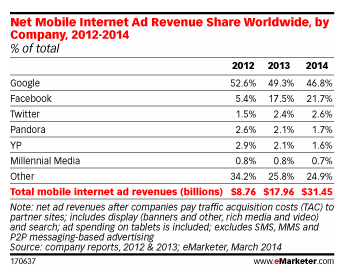Google's big disclosure diversion: Ads on thermostats

Google doesn't want to disclose revenue on mobile platforms so bad that it would rather have you think about the search giant carpet bombing everyday devices---thermostats, refrigerators and car dashboards---with ads instead.
The big news in tech land is that Google sees ad placements on more devices. The potential for ads everywhere was raised in a letter to the U.S. Securities and Exchange Commission, which would like to know Google's revenue on mobile devices.

Google's reply, which could be translated to 'hey look over there,' is notable, but merely a distraction in my view. Google said in a letter:
"We would also like to highlight the significant difficulties we see with the practice of breaking out CPCs and paid clicks -- or any performance metric -- by device platform. It is increasingly challenging to define what exactly a 'mobile' platform is from period to period -- and what it will be going forward...In a short period of time, the meaning of 'mobile' at Google has shifted dramatically to 'handset' from “tablet + handset”. We expect the definition of 'mobile' to continue to evolve as more and more “smart” devices gain traction in the market. For example, a few years from now, we and other companies could be serving ads and other content on refrigerators, car dashboards, thermostats, glasses, and watches, to name just a few possibilities."
"Our expectation is that users will be using our services and viewing our ads on an increasingly wide diversity of devices in the future, and thus our advertising systems are becoming increasingly device-agnostic."
I can't wait to see a mobile refrigerator, but I digress.
In the big picture, I'm going to view Google's response letter with a hefty dose of skepticism. Google doesn't want to disclose revenue and paid click data on mobile platforms because:
- Search behavior is different on mobile and Google can't monetize the same way.
- Google happens to dominates the mobile market with Android and assigning revenue to that platform could be sticky at some point with regulators.
- Enhanced campaigns combine mobile and desktop ad systems, but that doesn't work out for all customers---especially ones that would prefer mobile because the rates are better.
- Breaking out mobile revenue could begin to illustrate how much Google really owns the ad stack that chief marketing officers need.
In other words, don't get too carried away thinking about ads on your Nest thermostat.